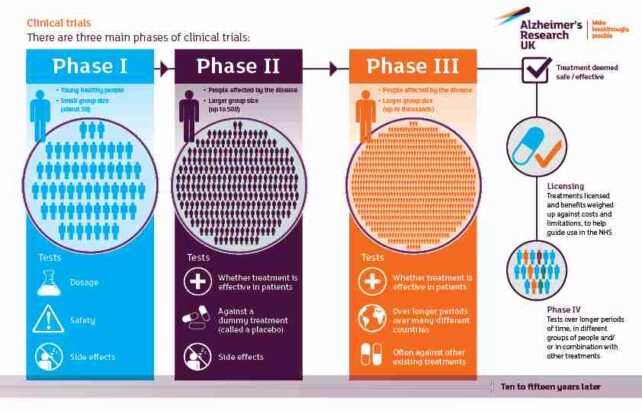ARTICLE AD
A systematic review of existing medicines has found that antibiotics and vaccinations are associated with a reduced risk of dementia.
Across the 14 studies included in the data crunch, most of which came from the US, researchers identified dozens of medications that could be linked to the risk of dementia – for better or worse.
The review is the largest of its kind, covering over a million cases of dementia, and while the results are not "immediately clear", there are some intriguing patterns at play.
While associations between certain drugs and dementia risk varied quite a lot between studies, some medications like antibiotics, antivirals, and vaccines were most often linked to reduced risk of dementia.
Four vaccines in particular, including those that protect against diphtheria, hepatitis A, typhoid, and combined hep A and typhoid, were associated with a reduction in dementia risk of between 8 and 32 percent.
Why that might be is unclear, but the international team of researchers notes that viral and bacterial infections appear to be common risk factors for dementia, and "there is increasing interest in vaccination as being generally protective."
"Our findings support these hypotheses and lend further weight to these agents as being potentially disease-modifying or preventative for dementia," the team concludes.
Their current research reveals only associations, so it can't tell us what is causing dementia or if and how these medications might help to prevent it. What it can do, however, is point scientists in the right direction.
Despite decades of research and tens of billions of dollars, only a handful of new drugs have been approved for dementia. Apart from a few recent, momentous breakthroughs, most of these options only treat the disease's symptoms, and others come with severe side effects.
 Clinical trial pathway for the development of drugs for dementia. (Alzheimer's Research UK)
Clinical trial pathway for the development of drugs for dementia. (Alzheimer's Research UK)As a result, some scientists have turned to already-approved drugs to see if they can be repurposed to stave off cognitive decline.
Recently, for instance, a drug that is used to induce labor was shown to protect the aging brains of mice, and in humans, those who take popular diabetes and weight loss drugs, like Ozempic, also seem to be at a reduced risk of dementia.
But the sheer volume of available drugs is not easy to sift through.
"Pooling these massive health data sets provides one source of evidence which we can use to help us focus on which drugs we should try first," explains old-age psychiatrist Benjamin Underwood from the University of Cambridge, who led the recent review with dementia researcher Ilianna Lourida from the University of Exeter.
The authors also found anti-inflammatory drugs, like ibuprofen, may be linked to reduced dementia risk. Antihypertensives and antidepressants, meanwhile, showed conflicting results.
Recent studies suggest dementia may be due to brain issues from high blood pressure or chronic inflammation, but further research is needed to figure out if the medications that tackle those issues are playing a role in cognitive decline, and how they are impacting that risk.
"We're hopeful this will mean we can find some much-needed new treatments for dementia and speed up the process of getting them to patients," says Underwood.
"If we can find drugs that are already licensed for other conditions, then we can get them into trials and – crucially – may be able to make them available to patients much, much faster than we could do for an entirely new drug."
The study was published in Alzheimer's and Dementia: Translational Research & Clinical Interventions.

 3 hours ago
2
3 hours ago
2 

